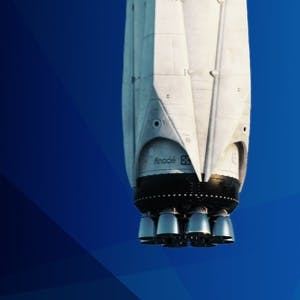- Home
- All updates
- EDGE Insights
- Industries
- Company Search
- My Watchlists (Beta)
All Updates
Artemis 1 mission postponed due to engine issues
Hexagon unveils Advanced Compensation for metal 3D printing
Eden AI raises EUR 3 million in seed funding to accelerate product development
Wiz acquires Dazz to expand cloud security remediation capabilities
Immutable partners with Altura to enhance Web3 game development and marketplace solutions
OneCell Diagnostics raises USD 16 million in Series A funding to enhance cancer diagnostics
BioLineRx and Ayrmid partner to license and commercialize APHEXDA across multiple indications
SOPHiA GENETICS announces global launch of MSK-IMPACT powered with SOPHiA DDM
Biofidelity launches Aspyre Clinical Test for lung cancer detection
Spendesk partners with Adyen to enhance SMB spend management with banking-as-a-service solution
Mews acquires Swedish RMS provider Atomize to enhance Hospitality Cloud platform

Space Travel and Exploration Tech
Artemis 1 mission postponed due to engine issues
-
Artemis 1, NASA's first mission to the moon since the Apollo mission in 1972, which was scheduled to launch on 29 August from the Kennedy Space Center, Florida, was called off as a result of engine problems and fuel leaks.
-
Launch controllers were still investigating why a bleed test to get the RS-25 engines at the bottom of the core stage to the right temperature range for liftoff had failed, and eventually missed the two-hour launch window. Additionally, there were also a series of weather issues throughout the launch window.
-
The next available launch day for the mission is 2 September, provided the engine issue can be solved. However, the delay could extend for several weeks if controllers have to roll the rocket back to Kennedy's assembly building to remove the engine.
<ul><li> AnalystQuickTake: Although this project is a giant step for NASA, there have been many hiccups along the way resulting in a five-year delay and a significant deviation from initial budgets with a per launch cost of USD 4.1 billion vs. the USD 500 million per launch cost initially budgeted for. Moreover, Boeing, which was the lead contractor for the SLS, seems to have lagged behind startups like SpaceX in terms of costs and meeting deadlines in recent times. SpaceX beat Boeing to the launch pad with its crewed flight in 2020 while Boeing is yet to launch its crewed flight test. Additionally, SpaceX’s average cost per passenger is USD 55 million, much cheaper than the estimated average cost of USD 90 million for Boeing.
Contact us
By using this site, you agree to allow SPEEDA Edge and our partners to use cookies for analytics and personalization. Visit our privacy policy for more information about our data collection practices.